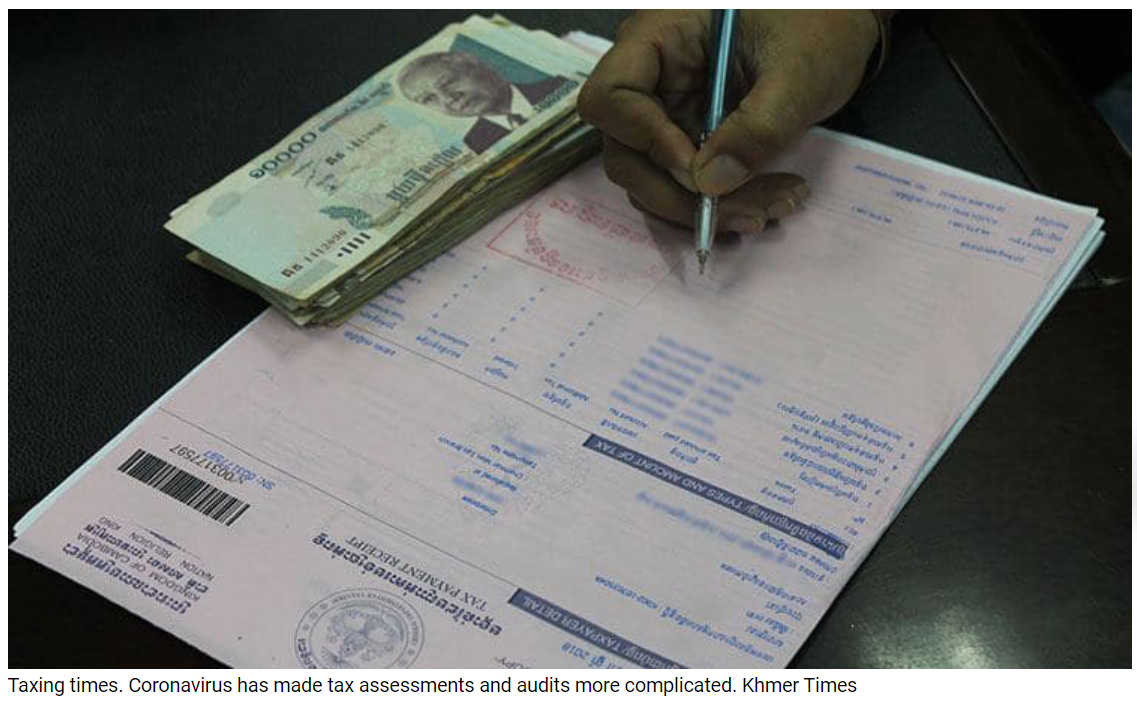Cambodia: Learn the ‘three Cs’ before filing your tax returns, experts advise
Talk to your tax department, respond quickly and be patient. That’s the advice from two leading tax advisers for companies submitting tax returns in Cambodia and preparing information before a visit from the auditor.
KPMG Cambodia Tax Associate Director Mom Rinsey Tola and Clint O’Donnell, who co-manages DFDL Cambodia’s tax team, spoke with members of the European Chamber of Commerce this week to address their concerns and ease their confusion about the rapid changes in the Kingdom’s taxation system. O’Donnell admitted even the experts are finding it hard to keep up.
“It never ceases to amaze me how much progress has been made with respect to tax regulation and regime,” he said. “As a consequence of that development we are finding more and more the issues that come up in the tax process are getting more and more complex.”
O’Donnell recommends the three Cs when talking to Cambodia’s General Department of Taxation (GDT): communication, calm and compromise.
Tola agrees that effective communication is essential and advises clients who get a draft review of any issues that come up in an audit to get in touch with the tax department as soon as possible.
“You should try your best to talk more with the tax office to cover all issues that have been raised in the draft assessment because when you move to the final assessment there will be much more documentation and information required,” she said. “We suggest you submit a protest within 30 calendar days to avoid any error or delay in turnaround time. Sometimes the tax office counts 30 calendar days rather than 30 working days and if they don‘t hear from you by then they will assume you agree with the assessment.”
The Coronavirus pandemic has added to the challenges of raising issues with a tax assessment, with staff working from home and auditors unable to carry out company visits. Tola says people should provide soft copies of documents to the GDT but need to be careful how they send them.
“There is a risk of information leaking or hacking, so you need to be careful,” she warned.
“In my experience the tax office may require information through email. Gmail is not a safe way to share information so request connection with the tax office email. Please avoid sending email between Gmail and your company’s personal email. Telegram is also risky. Some information sent to a phone number is not only for [the recipient]: It can be for the whole family so you need to consider the consequences.”
In place of a face-to-face meeting with the auditor, companies can use videoconferencing software such as Zoom or Microsoft Teams but again “consider the effectiveness and efficiency as well as the risks involved,” Tola advised. “Follow up with a formal letter to outline issues and responses,” she said.
In terms of a formal protest, Tola recommended logging in to the GDT website and submitting the protest letter rather than using office email. Again time management is key because it may take longer for tax officers to go through the information and there is always the risk of a tech “SNAFU” destroying your application. In times of Covid-19 everything relies on the internet. “You may have an issue with the GDT system so you need to know the hotline number and who to speak with in the tax office,” Tola said.
EuroCham’s Tax Tuesday’s Summer Series runs for two more weeks.
Source: https://www.khmertimeskh.com/50918896/learn-the-three-cs-before-filing-your-tax-returns-experts-advise/


 Thailand
Thailand




